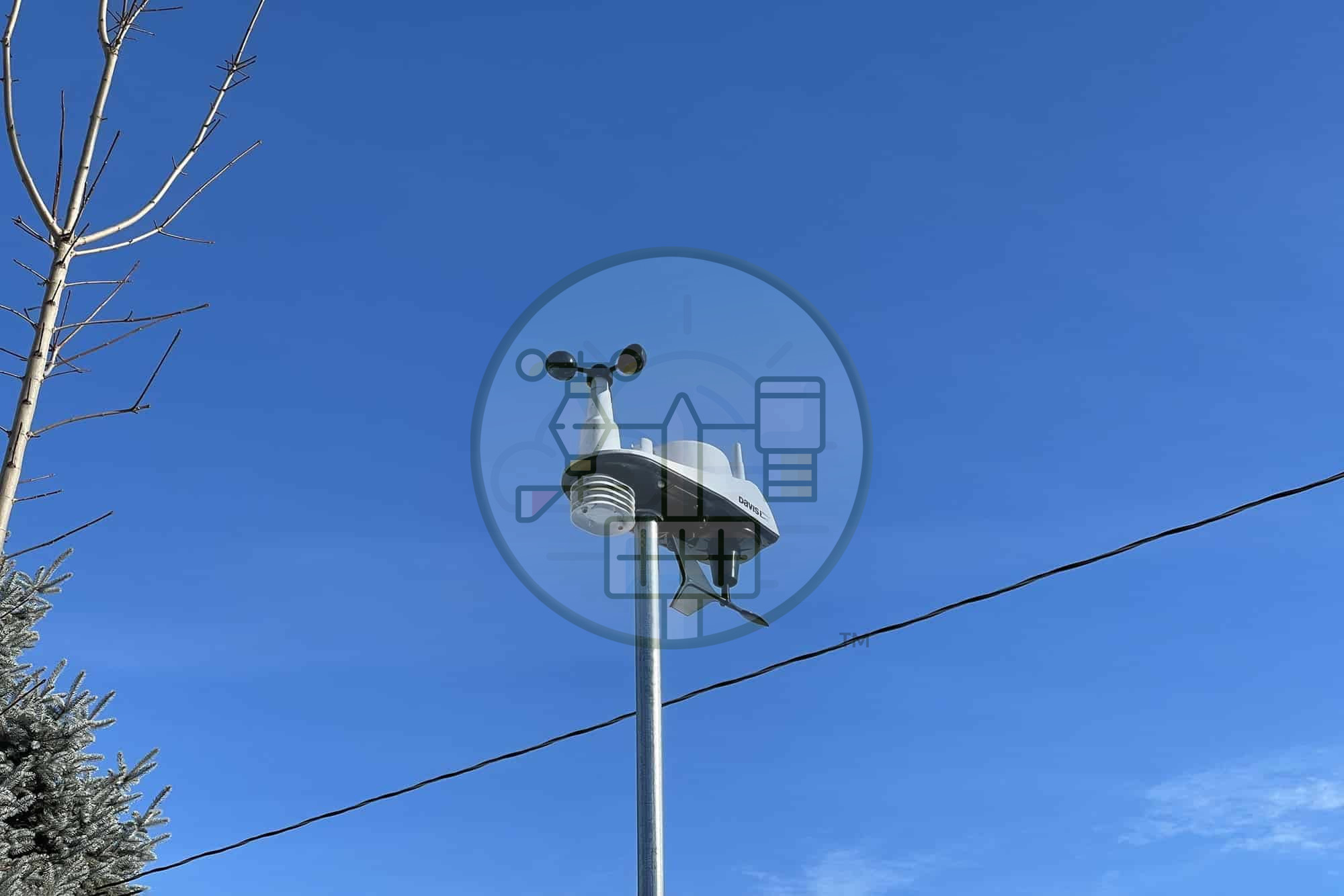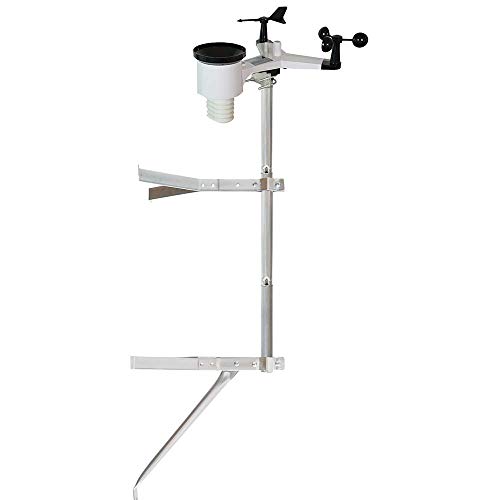It’s no secret that we’re big fans of Davis weather stations. They might not be the fanciest home weather stations, but they have a proven record of reliability that few other companies can match. Their stations last for decades and have measured the highest wind speed recorded by a personal weather station, 199mph!
Davis Instruments currently sells two weather stations: a cheaper model called the Vantage Vue, and a pro-grade model, the Vantage Pro2. Each model has advantages and disadvantages, which we’ll explain in our Davis weather station comparison. We’ll also compare specifications, discuss the WeatherLink Console, and touch on AirLink, which adds air quality measurements to your weather station setup.
BIG NEWS! Through a partnership with our sister site, Cirrusly Weather, we can offer Davis weather stations and accessories directly to you! Click Buy Direct to save over Amazon prices.
Davis Weather Station Comparison
| Image | Product Title | Features | Price |
|---|---|---|---|
 | The WeatherLink Console makes the Davis Vantage Vue a modern weather station but also increases the price. | Buy DirectCheck Other StoresRead Our ReviewDownload Manual | |
 | The Vantage Pro2 is made “new” again with the WeatherLink Console | Buy DirectCheck Other StoresRead Our ReviewDownload Manual | |
 | Davis Instruments Wireless Vantage Pro2 Plus with 24-Hr Fan Aspirated Radiation Shield |
| Buy DirectCheck Other StoresRead Our ReviewDownload Manual |
Expand Your Davis Weather Station
Davis’ AirLink is super accurate, but requires you to join the Davis ecosystem to use it.
Davis’ AirLink air quality monitor doesn’t measure carbon dioxide or VOCs but is one of the few monitors to detect PM1 particulate matter. PM1 is especially dangerous as it is small enough to penetrate the bloodstream and is difficult to disperse. While you can use the AirLink inside, we recommend one of our internal air quality monitors because they can measure much more than just particulate matter.
Remember that you need a WeatherLink Live access point or the WeatherLink Console to use the AirLink, which comes with either the Vantage Vue or Vantage Pro2 weather station. This worked especially well during the summer of 2023, as wildfire smoke caused poor air quality at TWSE HQ for several days.
- Can measure PM1 concentrations
- Integrates with WeatherLink Live
- Accurate readings, highly sensitive instrumentation
- Not a standalone sensor
WeatherLink Console by Davis Instruments
Finally, Davis joins us in the 21st Century with a modern and useful console.
The WeatherLink Console is Davis’ brand new way of interacting with your Davis weather station. It replaces the WeatherLink Live and will ship with all Davis packages. While the console’s introduction has resulted in a price increase across the board for most Davis weather station packages, it’s for the best.
An additional piece of hardware is no longer needed to connect your station to the internet. The screen, which measures about eight inches diagonally, is viewable from across the room and is touch-enabled. You can set about 100 alarms and view historical and graphed data on the console.
Is it perfect? No, as our review states. But it’s certainly a step forward for Davis.
- Arguably the best-looking console available
- Feature-packed
- It appears to be expandable and upgradeable
- The touch UI doesn’t work well
- Its best features are buried
- Expensive for a console
Davis Instruments WeatherLink Live
If you own a Davis weather station, then WeatherLink Live is a must-have. It connects your station to the Internet, and when you’re on the same network, the ability to monitor real-time weather conditions.
Davis tells us that the WeatherLink Live will be supported for the foreseeable future (and at least initially, is needed if you have an AirLink — the WeatherLink Console didn’t ship with support for Davis’ air quality device). And in some places, you can still find it, although rising component costs have made it much more expensive than it was at launch (by about $100).
We like the live updating within the app when you’re on the same Wi-Fi network as your WeatherLink Live. It’s a nifty feature, and I’ll admit to watching it intently during some of our stormiest weather. The WeatherLink Console can also do the same thing, by the way. If you’re not sold on the console, the WeatherLink Live is worth considering.
- Super quick setup
- Live in-app data when on your home network
- Adds expandability to your Davis station
- Ready for the smart home
- For current Davis users, no way to merge data
Popular Weather Station Mounting Options
Davis Vantage Vue vs Vantage Pro2: Our Verdict
Either Davis weather station is a great choice, but the Davis Vantage Pro2 is a solid station overall if you can afford it. With best-in-class accuracy and a track record of proven reliability, it’s one of the best weather stations available. The introduction of the WeatherLink Console makes it even better. But it’s very, very expensive.
We’ve owned a Vantage Vue since 2016 and love it. We’ve had no major mechanical problems with our station, and the accuracy is outstanding as long as you properly maintain it. And we’ve also purchased AirLink and are happy with its performance. But our next station is a Vantage Pro2, for sure.









